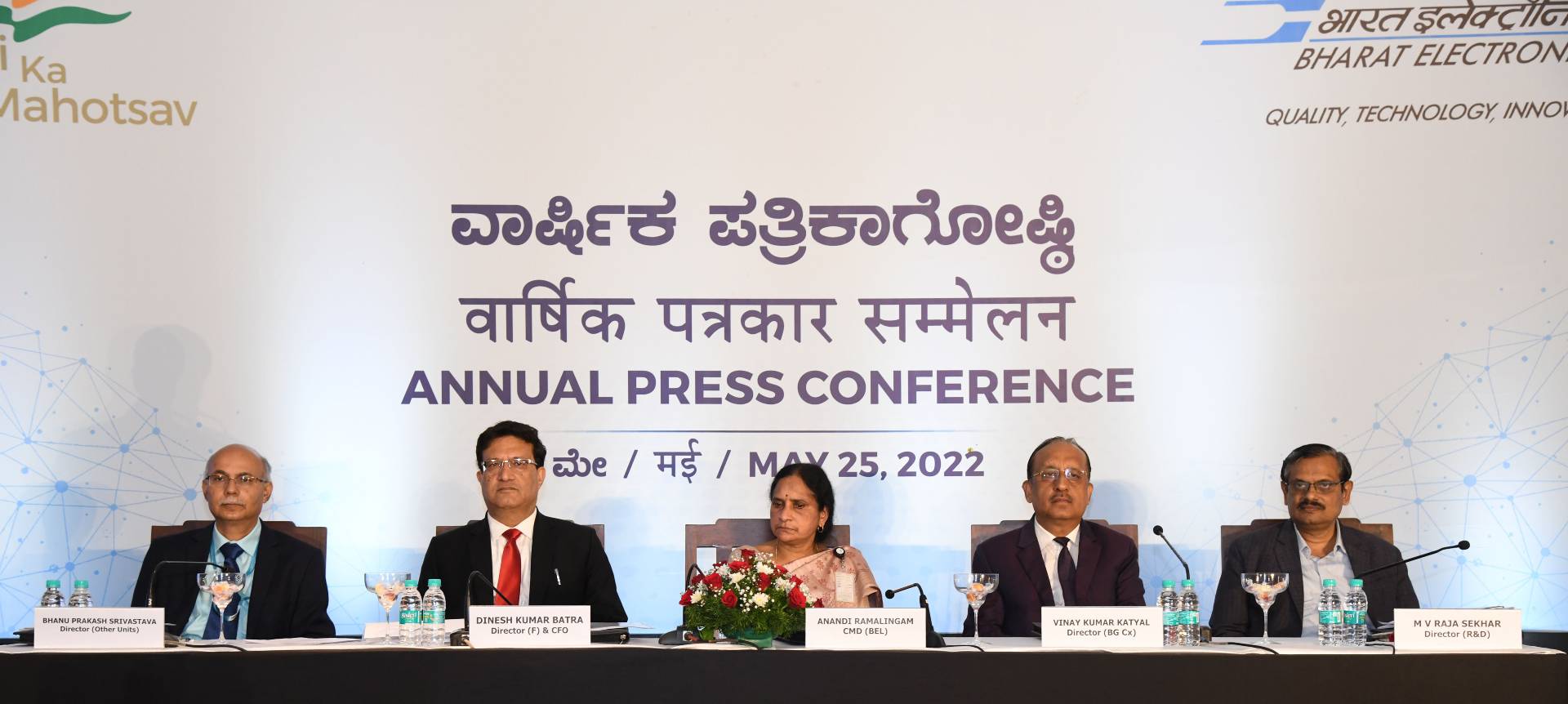Bengaluru, NFAPost: Revenue and export growth of the state-run Bharat Electronics Ltd (BEL) in fiscal 2021-22 was stunted by Covid pandemic, acute shortage of semi-conductor chips and Russian war in Ukraine, a top official admitted.
“Our revenue growth from operations and exports for the just-concluded fiscal (2021-22) were impacted by Covid-induced disruption, chip shortage and the geo-political situation arising of war in Ukraine,” BEL Chairman and Managing Director (CMD) Anandi Ramalingam told NFAPost here on Wednesday.
As a result, instead of growing in double-digit, the city-based defence behemoth revenue grew 8.2% annually to Rs 15,044 crore in the last fiscal from Rs 13,818 crore in the previous fiscal (2020-21).
Similarly, the export of its defence and non-defence products plunged 55% year-on-year (YoY) to $33.3 million in FY 2022 from $51.93 million in FY 2021.
“The ongoing war in Ukraine, which began on February 24, affected execution and delivery of our export orders due to logistics and transaction disruptions,” affirmed the top executive.

Net profit, however, grew 12% YoY for the fiscal under review to Rs 2,349 crore from Rs 2,065 crore a year ago, while profit before tax was up 7.6% to Rs 3,158 crore from Rs 2,935 crore.
Though the company began the fiscal with an order book of Rs 53,434 crore, the second lockdown in the first quarter (April-June) of the year affected its operations and delayed the delivery of its products.
Projecting a 15% annual growth for this fiscal (2022-23), Anandi said the order book as on April 1, 2022 was Rs 57,570 crore.
“Export order book for this year is $269 million, including orders valued at $179 million acquired in the last fiscal,” recalled Anandi.
Company’s Chief Financial Officer (CFO) Dinesh Batra said the capital expenditure in FY 2023 would be about Rs 750 crore as against Rs 465 crore in the last fiscal.
“Though we were to grow 15-17% YoY in the last fiscal, adverse factors such as chip shortage, supply chain disruptions due to logistics constraints amidst the Ukraine war and the pandemic have stalled our efforts,” Batra told NFAPOST.
While defence and non-defence (civilian) business is projected to be in the 80:20 ratio, the former accounted for 88 per cent of sales while the later was 12% in the fiscal gone by.
Highlighting the company’s performance in the last fiscal, Anandi said turnover from indigenous technology was 78%.
“Our armoured engineer reconnaissance vehicle was inducted into the Indian Army during the year. Among the major orders executed for the armed forces were the long-range surface-to-air (SAM) missile, Akash weapon system, fire control system, integrated air command and control system, advanced composite communication system, integrated electronic warfare suite and coastal surveillance system,” she asserted.
Major orders received during the fiscal under review include avionics package for the Light Combat Aircraft (Tejas fighters), advanced electronic warfare suite for MiG-29 of the Indian Air Force (IAF), electronic warfare systems for naval ships like destroyers and frigates of the Indian Navy and Electronic Voting Machines (EVMs) and voter-verified paper audit trail (VVPAT) for the Election Commission of India.
“Among products exported were coastal surveillance system, sub-systems of radar and electronic warfare (EW) systems, data link-II, cable looms, radar finger printing system and communication equipment,” said the CMD.
The company also signed a contract with global aerospace major Airbus to supply radar warning receivers and missile approach warning systems, as part of offset under C-295 aircraft programmmee of the government.
“We have collaborated with local partners in Kenya, Chile, Suriname, Nepal, Malaysia and Bangladesh. We have also formed strategic alliances with Indian platform manufacturers’ initiated process for signing agreements with local and foreign OEMs to address global markets,” added Anandi.





